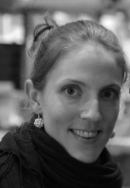Contact
Seminar of Cultural Anthropology and European Ethnology
Rheinsprung 9/11
CH-4051 Basel
Switzerland
Email:
lauritta@bluewin.ch
Further Information
Dissertation Project
Neglected Views on the Swiss Asylum System: Critical Analysis of Asylum Seekers’ and Refugees’ Participation Ppossibilities on Different Levels of Societal Living Together
Although Switzerland’s direct democracy is strongly based on the principle of participation, this does not mean, however, that everybody has the right to participate. For asylum seekers far-reaching, partly legally determined participation restrictions on different levels of societal living together, such as economic, political, social and cultural, are set in place. The possibilities of direct interaction between asylum seekers and local populations are therefore very limited and the majority of the Swiss population bases its opinion about asylum seekers solely on the mostly negative and one-sided images conveyed in media.
When asylum procedures get evaluated the main concerns mentioned in Switzerland usually are the costs caused by the system, the speed legal decisions on asylum claims are taken, and the possible security risks for the local population. In political and public discourses asylum seekers and refugees are mostly treated as numbers to be managed and problems to be solved and they hardly ever get the possibility to express themselves, to participate in the discourses about them. Consequently, the Swiss asylum system never really gets evaluated from the people’s perspectives that are in or went through the procedure. Hence, when the population is voting on new asylum policies, most of them are doing so without knowing the opinions, wishes, struggles of asylum seekers and refugees.
The viewpoints of asylum seekers and refugees on their ‘host countries’ and their asylum procedures are not only often silenced in public and political discourses, but they receive comparatively little attention in academia, too.
The aim of my PhD endeavour is to conduct semi-structured interviews (possibly also focus group interviews and participatory observation) with asylum seekers and refugees and thereby gain insights in their perspectives on the Swiss asylum system with focus on their possibilities to participate on different levels of societal living together within an environment of legal restrictions, media misrepresentation and a high level of resentment prevailing in the local population. By adopting an inductive research strategy inspired by constructivist grounded theory I try to keep the unavoidable power imbalance between interviewer and interviewees as low as possible.
I expect to obtain socio-politically and academically relevant insights into the asylum procedures and to generate ‘counter-evaluations’ to the currently dominant evaluations mostly focussing explicitly or implicitly on financial and security concerns.
Supervisors: Prof. Dr. Walter Leimgruber & Prof. Dr. Klaus Schriewer


